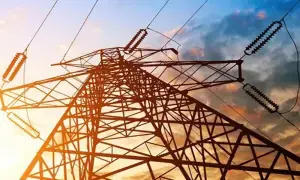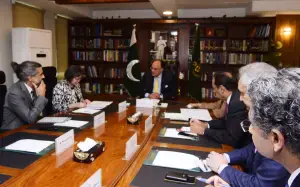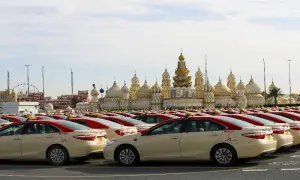Government mulls increasing petroleum levy to tackle circular debt
2 min readThe federal government was exploring various measures, including increasing the petroleum levy on motor gasoline and diesel from the current Rs60 to Rs80 per litre to tackle the rising circular debt, The News reported.
Top authorities are also considering imposing an additional levy on petroleum products and raising gas tariffs beyond the revenue requirements of gas companies. This would allow the government to address the circular debt, which has reached Rs2.9 trillion in the gas sector.
The government also aims to utilise the Gas Infrastructure Development Cess (GIDC) funds currently held by the Finance Division. Officials are reviewing options to offload inter-corporate debt partly in cash while the rest would be adjusted through book entries, similar to the approach used by former finance minister Ishaq Dar in 2013 to clear circular debt in the power sector.
The finance ministry, following IMF directives, has refused to allocate budgetary subsidies for the upcoming fiscal year to offset the Rs260 billion loss from the non-recovery of RLNG diversions to domestic consumers. The Petroleum Division has now been tasked with proposing practical solutions to address the circular debt issue.
According to officials, the revenue collected through the petroleum levy is currently used for budget deficit financing by the Finance Division. If the levy is increased by Rs20 per litre, the additional funds could potentially be utilised to pay down the circular debt in the gas sector.
But the government would need to pass a new act through the National Assembly to establish a special levy specifically for retiring the circular debt in the gas industry, the officials added.
Furthermore, the government would have to amend the GIDC Act if it wants to use the GIDC funds, which currently stand at Rs350 billion collected from various companies, to tackle the circular debt. An additional Rs400 billion in GIDC payments are yet to be recovered from the fertiliser and CNG sectors.
Experts suggest that increasing the gas tariff beyond the revenue requirements of gas companies could generate surpluses to gradually reduce the circular debt. It would require the political will of the government.
The government is also considering maintaining natural gas prices from July 2024, instead of the recommended 10% reduction, to help offset the Rs1.5 trillion shortfall.
For the latest news, follow us on Twitter @Aaj_Urdu. We are also on Facebook, Instagram and YouTube.


























Comments are closed on this story.